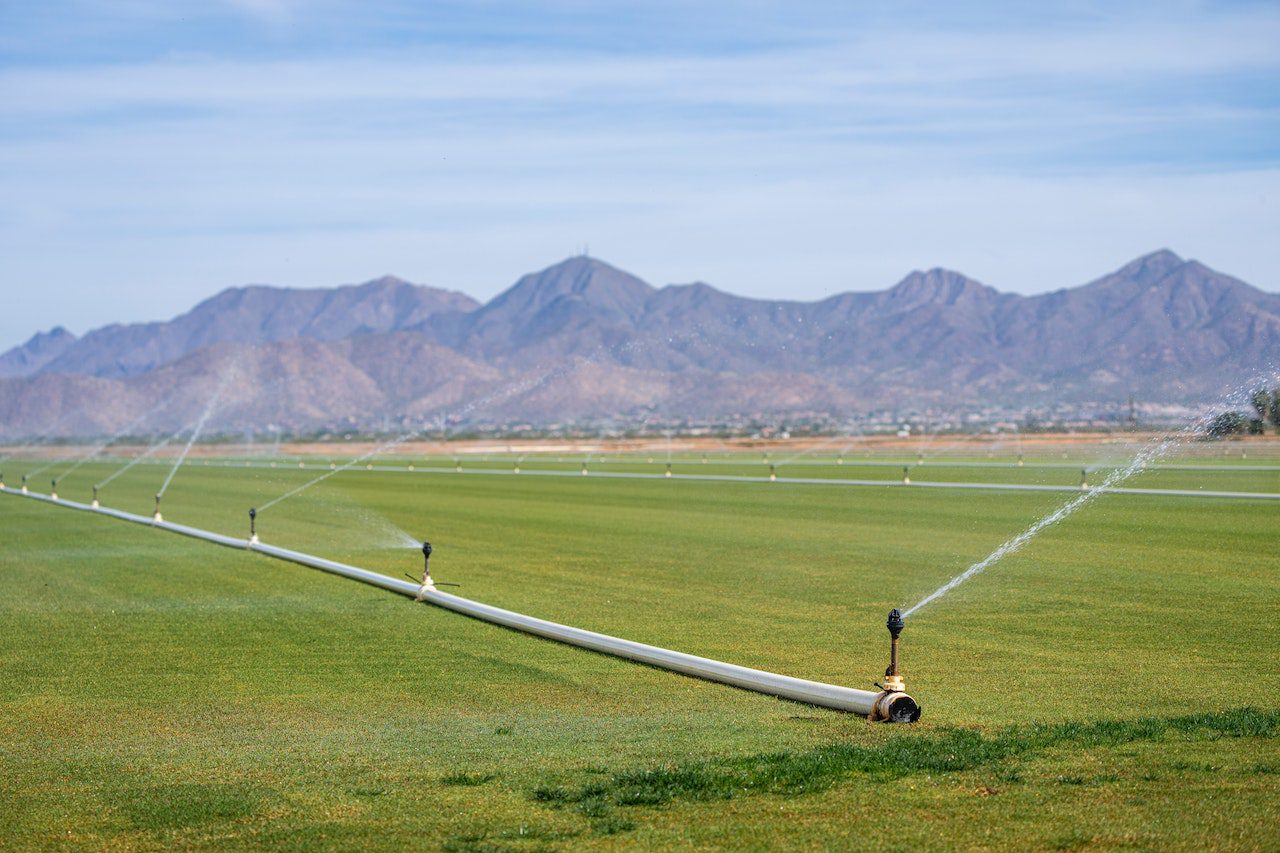Optimal Materials & Installation for Irrigation Pipe Setup

“Water is the driving force of all nature.” These profound words by Leonardo da Vinci stand as a timeless testament to the indispensable role water plays in sustaining life and fostering agricultural prosperity.
As farmers seek to harness this precious resource efficiently, installing delivery pipes for irrigation systems is a pivotal solution. Selecting durable materials and employing meticulous installation techniques are the cornerstones of optimizing water distribution and minimizing wastage.
Keep scrolling to learn about implementing ferrous metals, underground placement, bedding, thrust blocking and advanced joining techniques to create irrigation systems that stand the test of time. Join us as we delve into the critical aspects of pipes for irrigation that pave the way for sustainable agricultural growth.
Harnessing the Power of Ferrous Materials
Selecting the right materials for irrigation pipes is vital to ensure longevity and performance. Ferrous metals, such as steel and ductile iron, have gained popularity due to their strength and corrosion resistance. These materials suit irrigation systems in diverse environmental conditions and are ideal for carrying water over long distances with minimal losses. Utilizing ferrous metals for irrigation pipes enhances the system’s overall efficiency, making it a wise investment for sustainable agriculture.
Concealing the Flow: Underground Installation
Underground installation is becoming increasingly popular as it preserves the aesthetic appeal of agricultural landscapes and ensures the safety of pipes. Concealing pipes beneath the soil protects them from external damage and reduces the risk of accidents and vandalism. Proper underground placement eliminates the need for unsightly above-ground structures, allowing farmers to make the most of their land while ensuring an uninterrupted water supply to crops.
The Foundation of Excellence: Bedding and Backfilling
The success of an irrigation system lies in the attention given to the foundation. Many often overlook the critical aspects of bedding and backfilling during irrigation pipe installation. Properly selecting and placing suitable materials during installation ensures stable pipe alignment, preventing sagging or damage. This foundation of excellence enhances the efficiency and longevity of the irrigation system, minimizing maintenance efforts and maximizing productivity.
Standing Strong: Thrust Blocking Techniques
When installing pipes for irrigation, one must consider the forces exerted by the flowing water. Thrust blocking is employed to counteract these forces and prevent pipe movement or failure. Strategically placing thrust blocks at bends and fittings reinforces the system, safeguarding the structural integrity of the irrigation network. Implementing thrust-blocking techniques enhances the system’s longevity and mitigates potential risks, ensuring smooth water flow for years.
Seamless Connections: Joining Pipes for Irrigation
The method used to join irrigation pipes significantly impacts the system’s efficiency and durability. Advanced joining techniques, such as fusion welding or mechanical coupling, ensure leak-free and seamless connections. Reliable pipe joints prevent water loss and maintain consistent pressure throughout the system, thus optimizing water distribution to crops. A well-joined irrigation network reduces maintenance costs and promotes sustainable water usage, contributing to a greener and more prosperous future.
Scaling Down: The Advantages of Small Diameter Pipes
Small-diameter pipes offer unique advantages in certain irrigation scenarios. Their flexibility and ease of installation make them suitable for intricate landscapes or areas with limited space. These pipes for irrigation can effectively deliver water to precise locations, promoting targeted irrigation and reducing water waste. Farmers can optimize water usage, minimize costs and enhance crop yields by incorporating small-diameter pipes into the system.
Embracing Greatness: The Impact of Large Diameter Pipes
On the other end of the spectrum, large-diameter pipes are crucial in irrigation systems requiring substantial water flow. By accommodating higher volumes of water, these pipes ensure efficient irrigation across expansive farmlands. Using large-diameter pipes enhances the system’s capacity to meet the water demands of extensive agricultural operations, supporting sustainable growth and increased productivity.
Empowering Your Irrigation – The Bison Pipe Advantage
Take charge of your agricultural success with Bison Pipe! Experience the pinnacle of efficiency and durability in irrigation systems.
- Upgrade to Bison Pipe for unparalleled water distribution, utilizing high-quality ferrous materials and advanced installation techniques.
- Boost your crop yields, minimize water wastage and ensure sustainable growth with our reliable solutions.
- Join the league of successful farmers who have harnessed the power of our pipe to transform their fields.
Embrace excellence in irrigation and witness the difference it makes in your farm’s productivity.

